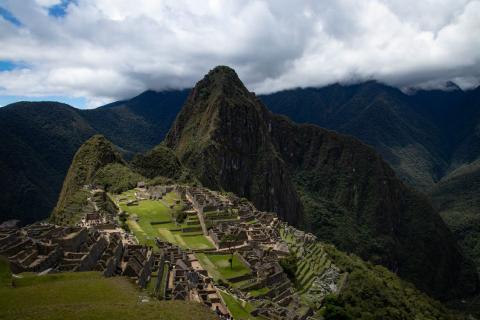Radiocarbon Dating Reveals Machu Picchu Older than Historians Thought

The famous Incan landmark and popular tourist destination, Machu Picchu, was once the estate of an Incan emperor called Pachacuti, who over the creation of the massive complex when he assumed power.
Colonial era documents assert that Pachacuti rose to power in AD 1438. However, Tulane archeologist Jason Nesbitt, along with Yale’s Richard Burger and University of California at Santa Cruz researchers Eden Washburn and Lars Fehren Schmitz, used radiocarbon dating to prove the citadel was built some two decades earlier.
This research highlights the contradictions between document based chronology and scientific methods for studying Latin American antiquity.
To read more about this research, see Tulane Today
